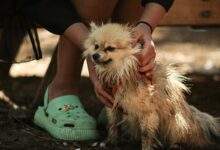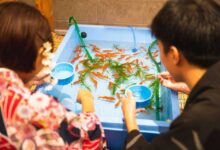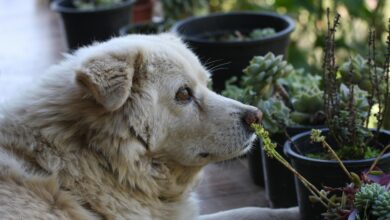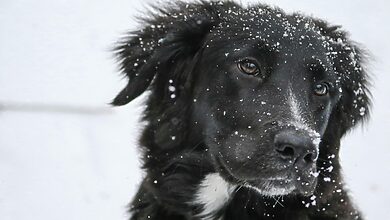Horse Health Problems: Causes, Symptoms, and Treatment
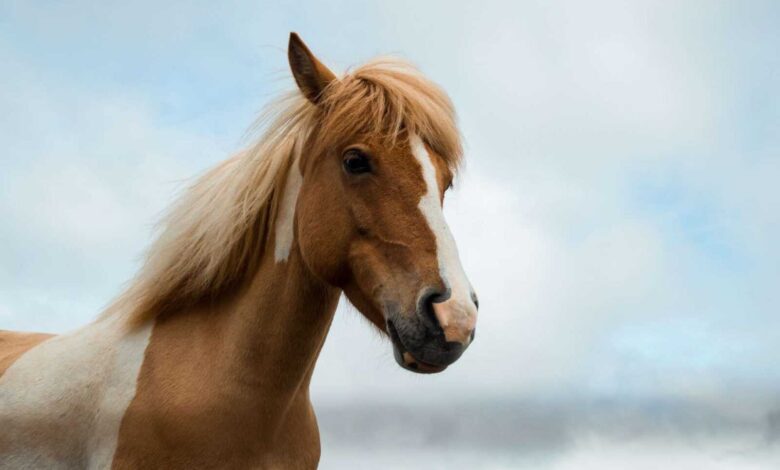
Horse health problems. Owning and caring for a horse is a rewarding yet intricate responsibility that demands a deep understanding of the myriad health challenges these magnificent creatures can face. From respiratory distress and digestive complications to potential injuries and parasitic threats, equine health is a multifaceted landscape that requires vigilance and informed decision-making. Let’s embark on an illuminating journey through the nuanced world of horse health, uncovering the intricacies of common health issues and exploring effective strategies to safeguard the vitality and well-being of our cherished equine companions.
Unveiling Common Horse Health Problems
Respiratory Problems in Horses: Understanding and Management
Horses, like humans, can suffer from a range of respiratory issues, including chronic conditions like Equine Asthma and Chronic Obstructive Pulmonary Disease (COPD). These conditions often manifest in symptoms such as coughing, nasal discharge, and labored breathing, significantly affecting the horse’s performance and overall well-being. Managing these conditions involves a combination of environmental adjustments, appropriate medications, and careful monitoring to ensure the horse’s respiratory health remains optimal.
Digestive Disorders and Management Approaches
Equine digestive issues, particularly colic and gastric ulcers, are common and can be life-threatening if not addressed promptly. Recognizing the early signs of discomfort, such as abdominal pain and changes in defecation patterns, is essential. Implementing dietary modifications, including controlled feeding schedules and specialized nutrition plans, is crucial for managing these conditions and maintaining a healthy gastrointestinal tract in horses.
Circulatory Issues and Mobility Challenges
Laminitis, a painful and often debilitating condition affecting the sensitive tissues within the hooves, can severely compromise a horse’s mobility and quality of life. Understanding the early signs of laminitis, such as increased digital pulses and a characteristic stance to relieve pressure on the affected hooves, is essential for prompt intervention. Employing a holistic approach that combines pain management, dietary adjustments, and proper hoof care can help alleviate the discomfort and improve the horse’s overall mobility and comfort.
Nervous System Complications and Equine Well-being
Equine Protozoal Myeloencephalitis (EPM), a neurological disease affecting the central nervous system, can lead to coordination difficulties, muscle atrophy, and even paralysis in severe cases. Early detection through neurological examinations and laboratory tests is critical for initiating appropriate treatment. Implementing a comprehensive treatment plan that includes specific medications, physical therapy, and supportive care is essential to manage the symptoms and improve the horse’s overall quality of life.
Reproductive Health Concerns and Equine Fertility
Maintaining optimal reproductive health is crucial for breeding and sustaining healthy equine populations. Monitoring the mare’s reproductive cycle, identifying any irregularities or signs of infertility, and conducting thorough reproductive evaluations are key in promoting successful breeding outcomes. Collaborating with experienced equine reproductive specialists and veterinarians can help address any underlying reproductive issues and maximize the chances of successful gestation and healthy foal development.
Eye, Ear, and Skin Problems: Care and Treatment
Horses are susceptible to various ocular, auricular, and dermatological issues that can significantly impact their well-being. Regular ocular and auricular examinations, along with prompt intervention for any signs of inflammation, discharge, or irritation, are essential in preserving optimal eye and ear health. Implementing effective grooming practices, including regular bathing and inspection for any skin abnormalities or lesions, is crucial for maintaining healthy skin and promoting overall equine comfort.
Hoof and Dental Issues: Ensuring Optimal Equine Mobility and Comfort
Maintaining proper hoof and dental health is integral to a horse’s well-being and performance. Regular farrier visits to address any hoof abnormalities or imbalances, along with routine hoof care practices, are crucial for ensuring balanced weight distribution and promoting optimal hoof function. Equine dental care, including routine dental examinations and floating procedures, is essential for preventing dental abnormalities, promoting efficient mastication, and ensuring proper nutrient absorption in horses.
Dissecting the Root Causes
Infectious Agents and Equine Health Risks
Equine health risks often stem from exposure to various infectious agents, including bacteria and viruses. Contagious diseases such as equine influenza and strangles can spread rapidly within equine populations, highlighting the importance of stringent biosecurity measures and routine vaccinations. Collaborating with experienced equine veterinarians to develop tailored vaccination schedules and implementing proper isolation protocols for new or sick horses is crucial in preventing disease outbreaks and preserving equine health.
Environmental Stressors and Equine Well-being
Environmental factors play a significant role in influencing a horse’s overall well-being and susceptibility to various health challenges. Extreme weather conditions, inadequate ventilation in stables, and exposure to toxic substances can all contribute to heightened stress levels and compromised immune function in horses. Ensuring a well-ventilated stable environment, practicing proper manure management, and regularly inspecting feed and water sources for any contaminants are essential in maintaining a safe and stress-free living environment for horses.
Dietary Imbalances and Equine Nutrition Management
Maintaining a well-balanced diet is crucial for supporting a horse’s overall health and performance. Dietary imbalances, such as inadequate fiber intake or excessive concentrate consumption, can lead to digestive disturbances and nutritional deficiencies. Working closely with equine nutritionists to develop customized feeding plans tailored to individual horse requirements is vital for ensuring optimal nutrient intake and promoting digestive health and overall well-being.
Physical Injuries and Equine Safety Measures
Horses, particularly those involved in rigorous training or equestrian activities, are prone to a range of musculoskeletal injuries. Common injuries such as sprains, strains, and tendon or ligament damage can significantly impede a horse’s mobility and athletic performance. Prioritizing proper warm-up and cool-down routines, incorporating regular exercise programs, and ensuring the use of appropriate protective gear during training or competitive events are essential in minimizing the risk of injuries and promoting equine safety and well-being.
Parasitic Infections and Equine Health Maintenance
Parasitic infestations, including internal worms and external parasites like ticks and mites, pose a significant health threat to horses. Routine deworming programs tailored to specific geographical regions and individual horse needs are crucial for mitigating the risk of parasitic infections and preventing associated health complications. Implementing pasture management practices, such as rotational grazing and manure removal, can further reduce the risk of parasite transmission and promote a healthier environment for horses.
Preventing Accidental Poisoning and Ensuring Secure Environments
Horses are curious animals that may inadvertently ingest toxic plants or hazardous substances, leading to severe health complications. Identifying common toxic plants within grazing areas, maintaining securely fenced pastures, and regularly inspecting the stable environment for any potential hazards are essential in preventing accidental poisoning incidents. Educating all individuals involved in horse care, including owners, trainers, and stable staff, about the potential risks and implementing clear protocols for handling and storage of potentially hazardous substances are crucial steps in ensuring a safe and secure environment for equine well-being.
Decoding the Telltale Symptoms
Behavioral Changes as Indicators of Equine Health Issues
Monitoring changes in a horse’s behavior is integral to identifying any underlying health issues or discomfort.
Signs of restlessness, aggression, or unusual withdrawal from social interactions can indicate pain or distress in horses. Observing subtle changes in mood, appetite, and activity levels and documenting any deviations from the horse’s typical behavior can provide valuable insights for prompt intervention and effective management of potential health concerns.
Altered Eating Patterns and Digestive Complications
Changes in a horse’s eating habits can serve as an early indicator of various digestive issues and nutritional imbalances. Reduced feed intake, prolonged periods of anorexia, or alterations in fecal consistency can all signify underlying gastrointestinal disturbances or dietary sensitivities. Conducting regular feed quality assessments, incorporating high-fiber forage options into the diet, and ensuring consistent access to fresh, clean water are essential practices for maintaining optimal digestive health and preventing nutritional deficiencies in horses.
Mobility Difficulties and Lameness Recognition
Lameness, characterized by an irregular gait or visible discomfort during movement, is one of the most common musculoskeletal issues observed in horses. Recognizing subtle changes in a horse’s movement patterns, assessing weight-bearing distribution, and conducting comprehensive lameness evaluations are crucial steps in identifying the underlying cause of mobility difficulties. Collaboration with experienced equine veterinarians and certified farriers to implement tailored rehabilitation programs and corrective shoeing techniques can significantly improve the horse’s mobility and overall comfort.
Physical Indications and Visible Symptoms in Horses
Regular physical examinations and grooming routines are essential for detecting any visible abnormalities or lesions on a horse’s skin, eyes, or ears. Skin conditions such as dermatitis, hives, or fungal infections can often be identified through close inspection and palpation of the horse’s coat and skin texture. Ocular and auricular abnormalities, including discharge, swelling, or signs of irritation, should prompt immediate veterinary assessment to prevent potential complications and promote timely treatment for any underlying ocular or aural health issues.
Implementing Effective Treatment Protocols
Medications and Therapies for Equine Health Management
In cases of infectious diseases or bacterial infections, prompt administration of appropriate antimicrobial agents or antibiotics is crucial for limiting the spread of pathogens and reducing the severity of symptoms in affected horses. Consulting with a qualified equine veterinarian to determine the most effective treatment regimen, including dosage recommendations and duration of therapy, is essential for achieving optimal treatment outcomes and minimizing the risk of antimicrobial resistance in equine populations.
Nutritional Support and Dietary Interventions
Equine nutrition plays a critical role in maintaining overall health and supporting optimal physiological function. Providing well-balanced diets rich in essential nutrients, vitamins, and minerals is key to promoting a strong immune system and enhancing the horse’s natural resilience to various health challenges. Incorporating dietary supplements, such as probiotics or omega-3 fatty acids, to address specific nutritional deficiencies or digestive imbalances can further optimize the horse’s nutritional intake and promote long-term health and performance.
First Aid Procedures and Emergency Care for Horses
Equipping the stable with a comprehensive first aid kit and possessing fundamental knowledge of basic first aid procedures are essential for addressing minor injuries and managing emergency situations effectively. Prompt wound cleaning and bandaging, along with the application of appropriate topical treatments or antiseptics, can help prevent the development of secondary infections and promote optimal wound healing in horses. Seeking immediate veterinary consultation for severe injuries or sudden health emergencies is crucial for ensuring timely and appropriate medical intervention and maximizing the chances of a successful recovery for the horse.
Integrating Holistic and Natural Remedies in Equine Care
Complementary and alternative therapies, including herbal supplements, acupuncture, and massage therapy, can play a significant role in promoting overall well-being and enhancing the horse’s natural healing capacity. Integrating these holistic modalities into a comprehensive treatment plan can help alleviate pain and discomfort, improve muscle flexibility and joint mobility, and promote relaxation and stress relief in horses. Collaborating with experienced equine therapists and certified practitioners to develop individualized holistic treatment plans tailored to each horse’s specific needs and health goals can yield substantial benefits and contribute to the horse’s overall health and wellness.
Promoting Preventive Measures for Long-Term Horse Health Problems
Regular Health Check-ups and Equine Wellness Examinations
Routine veterinary assessments and annual health check-ups are essential for monitoring the overall health status and well-being of horses. Comprehensive physical examinations, including vital signs assessment, body condition scoring, and dental evaluations, provide valuable insights into the horse’s current health status and help identify any underlying health issues or potential risk factors. Establishing a trusting relationship with a reputable equine veterinarian and scheduling regular wellness visits are crucial steps in proactively managing the horse’s health and promoting a long, happy, and fulfilling life for the equine companion.
Parasite Control and Hygiene Management in Stables
Implementing an effective parasite control program, including routine deworming protocols and strategic pasture management practices, is essential for minimizing the risk of parasitic infestations and safeguarding the overall health and well-being of horses. Conducting regular fecal egg count tests and utilizing targeted anthelmintic treatments based on individual horse needs and parasite prevalence levels can significantly reduce the likelihood of developing resistance to deworming medications and ensure optimal parasite control efficacy. Practicing proper stable hygiene, including regular stall cleaning and disinfection, and implementing adequate manure management strategies are critical for maintaining a clean and sanitary living environment and reducing the risk of environmental contamination and parasite transmission among equine populations.
Balanced Nutrition and Dietary Planning for Horses
Formulating a well-balanced diet tailored to meet the specific nutritional requirements and energy needs of each horse is essential for supporting optimal health and performance. Consulting with experienced equine nutritionists to assess the horse’s body condition, activity level, and dietary preferences can help develop customized feeding plans that address any nutrient deficiencies or imbalances and promote healthy weight management and muscle development in horses. Regularly monitoring feed quality, adjusting feeding routines to accommodate seasonal variations, and providing consistent access to clean, fresh water are fundamental practices for ensuring the horse’s nutritional needs are met and supporting long-term health and well-being.
Environmental Safety and Equine Security Measures
Creating a safe and secure stable environment is essential for promoting the physical and psychological well-being of horses. Implementing stable safety protocols, including adequate fencing, secure gating systems, and properly maintained structural facilities, can help prevent potential accidents and injuries and ensure the overall safety and security of horses within the stable premises. Establishing clear stable regulations and safety guidelines for all individuals involved in horse care, training, or recreational activities is crucial for promoting a culture of accountability and responsibility and fostering a supportive and nurturing environment for equine well-being.
Horse Health Problems
Understanding the intricacies of common horse health problems is essential for fostering a strong and enduring bond with our beloved equine companions. By recognizing the signs and symptoms of prevalent health issues, understanding their underlying causes, and implementing effective treatment and preventive measures, we can ensure that our horses lead healthy, fulfilling lives and continue to enrich our own lives with their timeless grace, unwavering companionship, and undeniable spirit. Through our unwavering commitment to comprehensive care and proactive management, we can honor the profound connection between humans and these remarkable creatures and ensure that their well-being and longevity remain at the forefront of our equine care practices.

